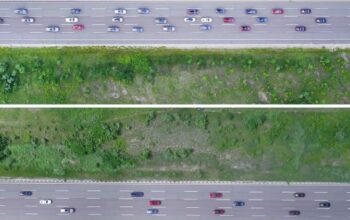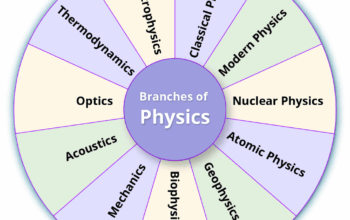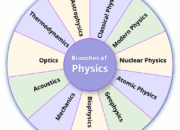From time immemorial, humanity has gazed at the cosmos with a blend of awe and curiosity, ensnared by the shimmering allure of celestial bodies that punctuate the night sky. Chris Lintott, an eminent astrophysicist and science communicator, invites us to explore this vast expanse not merely as passive observers but as active participants in a grand cosmic narrative. His initiative, “Universe,” encapsulates a profound observation: the universe is not just a sterile collection of stars and planets but a dynamic entity that resonates profoundly with our human experience.
At its core, Lintott’s work reveals a compelling duality: the universe, with its unfathomable scales of time and space, coexists with the intimate narratives of human life. This juxtaposition raises questions that transcend the boundaries of conventional astronomy. What drives our fascination with the cosmos? At first glance, the answer may lie in the sheer scale and beauty of the universe. The intricate patterns of galaxies, the dazzling spectrum of nebulae, and the enigmatic nature of black holes provoke a visceral response, anchoring our quest for understanding.
However, this interest is often underpinned by deeper psychological and philosophical motivations. The cosmos serves as a mirror, reflecting our aspirations, fears, and ultimate curiosities about existence. The expansive night sky elicits not merely wonder but also humility, as it reminds us of our infinitesimal place in the grand tapestry of time and space. Lintott adeptly teasing apart this notion, positions our engagement with the cosmos as an exploration of humanity’s own narrative.
The empirical lens through which Lintott views the universe reveals a framework within which ordinary individuals can intersect with profound scientific inquiry. By harnessing technology and citizen science, platforms like Zooniverse enable enthusiasts from varied backgrounds to contribute to astronomical discoveries. This democratization of science fosters a collective consciousness, allowing participants to grasp the vastness of the cosmos while cultivating a sense of agency within it. In this paradigm, each citizen scientist becomes a contemporary Galileo, contributing to the narrative of discovery and pushing the boundaries of our comprehension.
Moreover, Lintott’s embrace of a multifaceted approach to astronomy embodies the essence of interdisciplinary inquiry. He intertwines art, philosophy, and cultural studies with scientific exploration, presenting the universe as a canvas for human engagement. This integration fosters a holistic understanding, positioning science not as a mere accumulation of facts but as an intrinsic aspect of the human experience. Cosmic phenomena are depicted not solely through equations and models but also through the lens of artistic interpretation, challenging us to reconcile empirical observation with emotional resonance.
Lintott articulates the allure of astronomy with an emphasis on the profound questions that arise in the face of cosmic magnificence. The search for extraterrestrial life, the origins of the universe, and the fundamental structure of reality are not merely discipline-specific inquiries; they are existential contemplations that compel us to ponder our place within the cosmic order. Each new discovery, from the detection of exoplanets to the investigation of dark matter, enriches our understanding of the universe yet simultaneously amplifies the enigmatic nature of existence. The more we learn, the greater the chasm of uncertainty appears, thus perpetuating our quest for knowledge.
This psychological engagement with the universe also underscores a significant phenomenon: the awe that emerges from the confrontation with the unknown. Cognitive scientists have posited that experiences of awe can be transformative, fostering creativity, promoting prosocial behavior, and enhancing well-being. Lintott’s universe, steeped in the unknown, thus becomes not just a backdrop for astronomical exploration but a catalyst for personal growth and communal solidarity.
Furthermore, as Lintott navigates the narrative of cosmic exploration in his works, he deftly engages with the ethical ramifications of new technologies and scientific practices. The advancement of astrophysical tools raises critical questions regarding access and equity in scientific research. Who controls the narrative surrounding cosmic exploration, and how do we ensure that the marvels of the universe are accessible to all? Herein lies a pivotal challenge: the duty to engage underrepresented voices in the scientific discourse concerning the universe.
In conclusion, Chris Lintott’s universe is a constellation of ideas that resonates with our intrinsic need to seek understanding amid the ineffable. His perspective illuminates the intricate relationship between the cosmos and the human experience, revealing that our fascination with the heavens is not merely a pursuit of knowledge but also a journey of self-discovery. The universe, when viewed through Lintott’s lens, transforms into a shared narrative that beckons each of us to contemplate our place within it. As we continue to explore this breathtaking frontier, we are not just unveiling the mysteries of outer space but also delving deeper into the human condition. In this cosmic odyssey, each discovery enriches not only our scientific endeavor but also our collective humanity, thereby crafting a narrative that is as compelling as the stars themselves.









